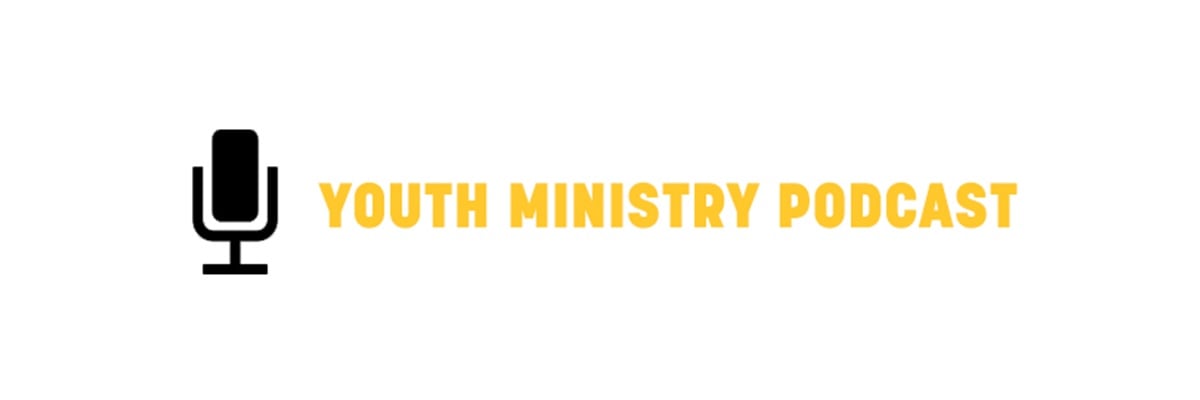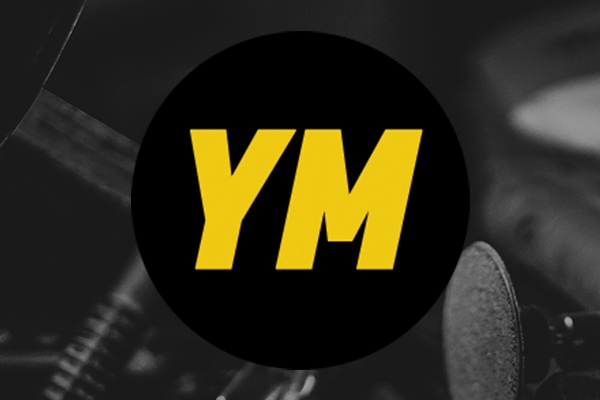
In the world of youth ministry, it’s all about staying up to date on the latest trends. (And, you know, teaching students about faith.) Between the catchy youth group acronym names, the corny jokes (no purpling!), and those jeans you’re not quite sure you’re rocking, it can seem like your job as a youth leader is one big party.
Well, to everyone besides you.
As a youth worker, we know you’re always finding the balance between fun and serious faith formation. You’re there for the epiphanies, vulnerability, and discovery—as well as dodgeball tournaments and lock-ins.
Your job is hard. But it’s also unbelievably rewarding.
The Youth Ministry Podcast
That’s why we created the Youth Ministry Podcast. It’s a weekly opportunity for you to listen in as hosts Bryan Bliss and Erik Ullestad talk about pop culture trends (missed Jesus Christ Superstar Live? We’ve got you covered), as well as the unique challenges of youth ministry, such as lesson planning or walking alongside your students through tragedy. As veteran youth workers, Bryan and Erik aren’t afraid to tackle the silly, the serious, or the downright confusing aspects of a career in youth ministry.
We sat down with Bryan and Erik to ask them more about themselves. Curious about their vision for the podcast, their favorite—and least favorite—aspects of youth ministry, and the most outrageous choice they ever made in the name of relational youth ministry? Read on.

Q&A with the men behind the mic
Q: Tell us more about your youth ministry backgrounds.
Erik: I’ve been doing youth ministry in a congregation since 2001; 2 years in a rural setting, 12 years in the suburbs, and the last 3 in an urban context.
Bryan: I started doing youth ministry in 1998, finally transitioning to full time in 2004. For the last four years, I’ve been working as a curriculum developer with Sparkhouse. But I recently accepted a part-time position as a youth worker, so it’s back into the trenches for me!
Q: What have you loved about working in youth ministry.
Erik: It might sound cliché, but it’s an honor to be invited into the spiritual lives of young people. I love fielding questions, wrestling with doubts, and celebrating joyful moments. I also love that I’ve eaten a lot of free pizza over the years.
Bryan: Honestly? I like the slightly subversive nature of youth ministry. While youth workers get a bad rap for doing ministry through go-carts and Xbox … that’s kind of what makes it great. I like that youth workers are able to transcend the boundaries of what is considered “normal” ministry, to meet students where they are and in the things they love. Also, what Erik said about pizza.
Q: Is there anything you haven’t loved?
Erik: Lock-ins. Also, keeping track of expense receipts on youth trips. I always lose at least one, and it’s usually the $400 grocery bill.
Bryan: It’s amazing that Erik and I are so alike.…
Q: What’s been your favorite part of doing the podcast so far?
Erik: Coming up with new topics each week can be challenging, but it’s something that has helped me be more thoughtful about the work I do at church.
Bryan: I enjoy having an ongoing conversation about youth ministry, especially as I haven’t been actively working in a church the last few years. Plus, helping others avoid the mistakes—oh, the mistakes!—I made in ministry is an honor. Not that some of them weren’t fun in the moment.…
Q: What do you hope youth leaders will get out of listening?
Erik: Hopefully people will realize that they’re not alone. Bryan and I try to be honest about our ministry experiences, which we hope invites listeners to see themselves as our partners and colleagues in ministry.
Bryan: For me, it’s a matter of realizing that nobody is going to do this job perfectly. You’re going to mess up! People are going to get upset! But viewing youth ministry as a calling, something that you’ll spend your career learning about, is information I wish I had when I started.
Q: Is there anything in the works you’re particularly excited about?
Erik: We’ve got a few interviews with some brilliant, talented people lined up. It’s always great to have new voices on the podcast. Also, we’re going to be launching a new podcast this summer where we get to discuss and pick apart curricula that we’ve helped create.
Bryan: I’d second the new podcast. It’s a unique training opportunity for youth workers, where they can listen to us talk about the highlights of individual lessons in our curriculum. So, say there’s a youth worker who didn’t budget enough time to prepare for a lesson they’re teaching in 15 minutes (ahem) … this is the podcast for you!
Q: What’s the most outrageous thing you’ve done in the name of relational youth ministry?
Erik: During my first few weeks of ministry, I was told that going to high school football games was a critical way for me to build relationships in the small town. The first game of the season was an away game, but I went because I was the new guy; willing to please and eager to get to know people. The game was 70 miles from home and it was against the defending state champs. There were, maybe, 30 people in the stands and I didn’t know any of them. I think I submitted over $100 in receipts for mileage, supper, and game admission … and I built ZERO relationships. Shortly after, the youth committee chairperson clarified that homegames in that small town are the best time to do relational ministry.
Bryan: At some point, I got it into my head that bringing lunch to students at school would be a great way for me to connect. So, every week, I basically forced kids to sign up for me to bring them lunch. It was like pulling teeth to get them to decide what they wanted me to bring and I didn’t understand it. I had the church credit card! I was willing to bring pizza, McDonald’s, whatever! But I soldiered on for a solid six months until one of the blunter teenagers in my youth group pulled me aside and said, “Bliss, you’re making everybody uncomfortable with this lunch thing.” I stopped, but I still think it’s a good idea.
Listen to previous episodes of the Youth Ministry Podcast on the podcast website, or subscribe to the podcast on iTunes, Google Play, or check your favorite podcast app.



